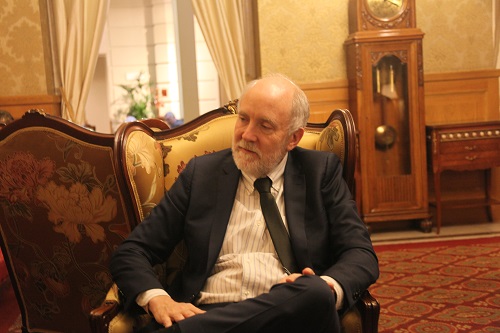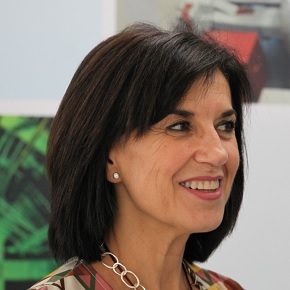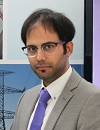 |
||
|
Matthew Bunn: we can still work together AtomInfo.Ru, PUBLISHED 10.02.2019 Matthew BUNN, professor of the Belfer Center for Science and International Affairs, answers questions from correspondents for the electronic publication AtomInfo.Ru. CONTINUED BELOW Matthew Bunn, (c) AtomInfo.Ru  Nonproliferation and cooperation Mr. Bunn, what kind of cooperation in nonproliferation could we still have between Russia and the United States? Well, I think Russia and the Unites States still have strong common interests in nonproliferation. Even after the U.S. sanctions in 2014 we continued to work together on the Iran nuclear deal. Unfortunately the Trump administration has pulled out of that deal. There is some discussion and a little cooperation on North Korea and implementation of the United Nations sanctions on North Korea. It is my hope that North Korean negotiations will move forward and will ultimately involve not just the Unites States and North Korea, but also Russia, China, Japan, and South Korea. We will see if it evolves in that direction. I think we need to work together on the preparation for the 2020 NPT Review. Traditionally, the nuclear weapon states have had a common position on Article VI. Especially, with the new treaty on the prohibition of nuclear weapons. Yes. Yes, I think, there needs to be at least not mutual firing at each other in the NPT talks. Unfortunately, in one of the recent Preparatory Conferences, your people from the Ministry of Foreign affairs attacked the Unites States as the main problem on Article VI. I thought that was unfortunate because there is lots of grounds that the Unites States could attack Russia if it wanted to and that really would not be productive in the lead up to 2020, which I think is may be a disastrous NPT review. You know, in 2015 the NPT review did not go well, because there had been no progress on a Middle East weapons of mass destruction free zone, or on disarmament, and we have had now another five years with no progress in either area. And with the Unites States pulling out of the INF Treaty and no negotiations at all about further reductions, the situation is even worse. It is very hard to make the case that you are fulfilling a legal obligation to negotiate in good faith toward disarmament if you are not negotiating at all. So, I think there are areas to work together. I think we are not working together enough right now. Could Article VI be included into the agenda of this? Absolutely. And in fact, deputy minister Ryabkov was very concerned about Article VI in the 2020 NPT review and the possibility that some countries would start concluding that the NPT maybe was no longer in their interests. So I do think there is a lot to work on together. I also think, I am a believer that whatever political disagreements we may have, the Unites States and Russia have a common interest in the future of peaceful use of nuclear energy. I think that the Unites States made a mistake in cutting off nuclear energy cooperation with Russia and that Russia made a mistake in cutting off nuclear security cooperation with the Unites States. I think we ought to be cooperating in both of those areas, as well as nuclear safety, nuclear cleanup, nuclear science, verification technology. I think the fact that the world's two largest nuclear complexes are proceeding in total isolation from each other is a danger to each of us and a danger to the rest of the world as well. And we have to find the way to fix it. We had good cooperation in Nigeria, removal of the HEU from their MNSR reactor. It was under the Agency umbrella, but there were people from NNSA and some Russian experts. So, why not to increase our cooperation under the Agency umbrella? Well, that has potential in some areas. But I will give you an American perspective. Unfortunately it appears to the American side that many Russians at the Agency seem to have instructions that if the Americans are for it, Russia should be against it. And Russia has been strongly opposed to approaches to safeguards that the Unites States thinks would strengthen Agency safeguards. So it has been difficult even in the Agency. However there are areas where we could work together. When you can get down to the real technical experts, they can work together. So, for example, one thing that is genuinely difficult is figuring out how best to assess how vulnerable a nuclear facility is to some intruder or other threat. Russia has its approaches, and the Unites States has its approaches. Some of Russia's best experts and some of the best American experts, as well as experts, of course, from other countries have been working together in a coordinated research project at the IAEA on approaches to vulnerability assessment. So, there may be more than we can do, but, again from an American perspective, it has seemed that on many important topics Russia has been opposing almost everything the Unites States thinks is worthwhile at the IAEA. Nonproliferation and future reactors One more question. There are some trouble with nuclear power in the world, with large size reactors. Nobody wants to construct these reactors, except for some countries. Some people talk about small reactors, floating plants, like Chinese and Russian. In the U.S., they talk about molten salt and so on. What would be the new task from the point of view of nonproliferation for such kind reactors? We know how to inspect the VVER and PWR, but what about the new types of reactors. Right. So, it really is a technology-by-technology issue. In fact, even within molten salt there are different designs that have different safeguards and proliferation implications. In fact, some colleagues of mine and I had a paper at the recent Safeguards Symposium where we discuss a set of questions that we developed and asked of experts on safeguards for several reactor types. So, I think there is a big agenda for making sure we design in from the beginning both approaches to make it difficult to use the fuel cycle for any future systems for nuclear weapons and effective safeguards approaches, so both what is sometimes called "proliferation resistance" and "safeguards" are built in at the outset. Design it in from the beginning because if you try to tack it on leader, it is less effective and more expensive than if you incorporate that into the design. That is what we called "safeguard by design" approach. Exactly. And "security by design", as well, I think. But actually I would argue a number of the future systems are fairly promising from a proliferation resistance point of view. I mean these sealed core reactors where you bring reactor to the site, it generates power, you take it away. The country where it is operating does not necessarily have to have any knowledge of the fuel cycle at all. So, I think there is a big agenda to figure out how to do it right. I think there are promising opportunities to do it right and there may be ways where we could have a big deployment of nuclear energy around the world with only a modest proliferation risk resulting from that. It sounds like we should think about nuclear market and service of the fuel cycle. Even if you just sell a unit, nuclear battery, still you need to support it and to return the spent fuel. I hope that some country eventually goes into the business of providing a repository that other countries could pay to send waste or spent fuel to. Maybe, Australia? I personally do not expect Australia to actually do it anytime soon because of the politics of accepting another country's nuclear waste. But if eventually some country can have such a repository, they will make a lot of money, and once other countries see that they are making a lot of money and it is not actually causing any serious environmental problem, I think, at least a couple of other countries will decide to go into that business. I think both for the future of nuclear energy and for nonproliferation it would be much better if there were a handful of mined repositories that everybody used rather than every country that ever had one nuclear power plant having its own nuclear waste repository with spent fuel in it. In Russia, work on fast reactors is underway. In the future we can export fast reactors to the other countries, but some people say, the U.S. will try to cancel this business. Under what conditions the U.S. could agree with fast reactors export? First of all, I personally think it is very unlikely that fast reactors will be commercially viable. So far, they are even more expensive than light water reactors. But there is certainly no law of physics that says fast reactors will always be more expensive than light water reactors. Secondly, the reality is that while the Unites States has been very influential in the nuclear markets in the past, that influence is going down. Today, the only U.S.-origin nuclear reactors under construction anywhere outside the United States are in China, whereas Russia is building nuclear reactors in quite a number of countries. I was looking on Rosatom's website the other day, and they say they had $133 billion in back orders on their order book. There is no U.S. company that is within a factor of ten of that. So, if Russia someday had a really commercially attractive product export in the way of fast reactors, it is not obvious to me that the United States would be in a position to be able to do anything about it even if it was opposed. I would recommend to Russia, even if you did want to export fast reactors, to think hard about the fuel cycle. For example, you could think about small fast reactors with sealed cores, so that all of the fuel cycle took place in Russia, and you could think in terms of low-enriched fuel rather than highly enriched fuel for these reactors, although I know that Russia's concept ultimately is that they would use plutonium, and there is no such thing really as low-enriched plutonium. So, I remain hopeful that the notion of a plutonium fuel cycle with reprocessing will not spread very fast because it is totally uneconomic and in fact most of the countries that were reprocessing or sending their fuel elsewhere to be reprocessed are no longer doing so. So, the movement has been in the opposite direction in recent years. Nuclear power is now coming to Asia… You know I was surprised that Russia was willing to build a facility in Bangladesh. Why not have a new international mechanism allowing to invite India, China and other countries to discuss on the general issues of nonproliferation, nuclear power and so on? There is been talk for many, many years about how could we create some kind of AsiaAtom, the type that there is in Europe. Unfortunately, the countries of Asia do not have the kind of relations with each other that the countries of the European Union have. But in spite of bad relations between Russia and the United States we can talk with you. It is not a great example. When you look at where we are on nuclear energy cooperation, that is simply nothing between the Unites States and Russia right now. But Japan and South Korea do not get along, South Korea and China do not get along, Japan and China do not get along, Taiwan and China really do not get along. And so it is very hard to figure out how to create a cooperative system for managing nuclear energy in Asia. So far the more promising approach has been integrating them into international systems, including the International Atomic Energy Agency system. I think the most promising regional approach is cooperation among nuclear regulators in the way that Europeans now have, an organization where the regulators at least get together and discuss common problems. Like in the European Nuclear Safety Regulators Group? Right. I think something like that in Asia might well be possible. Thank you, Mr. Bunn, for speaking with the electronic publication AtomInfo.Ru. Topics: Interview Other news: 454 nuclear units are operating in the world Another 54 units have the status of the being built one. The MoU was signed at the 9th Session of the High-Level Russia-Singapore Inter-Governmental Commission in Singapore. Nuclear fuel loading has commenced at the 4th power unit of Tianwan NPP On August 25, 2018 the first fuel assembly was loaded into the core of Tianwan NPP Unit 4 in China. |
Hero of the day 
Amparo Gonzalez Espartero: our task is to help member states We are dealing with the back end of the nuclear fuel cycle until spent fuel is declared as a waste, covering storage options, reprocessing and recycling, transportation of nuclear materials and advanced fuel cycles related to Generation IV reactors. INTERVIEW
Peter Prozesky OPINION
Chirayu Batra Last news:
|
Licence Р ВР В» №ФС77-30792. ATOMINFO™ trademark.

